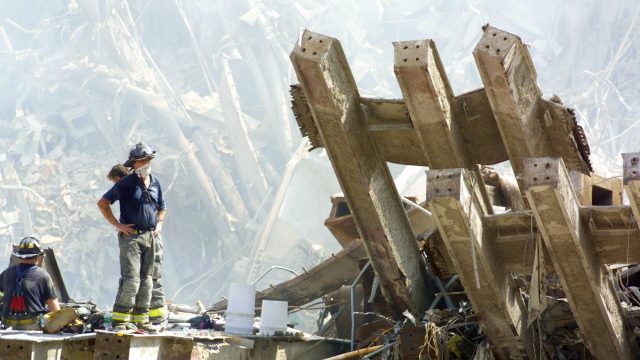
First responders to the Sept. 11, 2001, terrorist attacks still face a fight for affordable health care 24 years later, and recent pendulum swings of the federal budget have renewed concerns that the World Trade Center Health Program, designed to help these workers, could be permanently gutted. Many of these responders have developed cancer and other illnesses from being at Ground Zero two decades ago, and the program has always provided a lifeline.
What is happening with the 9/11 first responder program?
The World Trade Center Health Program has “provided life-saving care to tens of thousands of people for more than two decades,” but it has been struck by a “wave of staffing cuts and agency turmoil” at the behest of the Trump administration, said ABC News. Large portions of the program have been through ups and downs; the program’s longtime director was “removed in February and then rehired after bipartisan backlash.” However, it remains unclear “whether his legal role as administrator was actually restored.”
Staffing shortages across the federal government have also hit the program, as the Trump administration has “fired and rehired certain staffers, only to terminate them again,” said NBC News. These program staffers were “swept up in the Trump administration’s firing of probationary workers in February” as part of a 20% staff reduction.
Following bipartisan backlash, the White House claimed that these staffers were rehired, but many have been “told their jobs have been eliminated and some have not been restored, despite claims they would all be rehired,” said the New York Daily News. As a result, the program “remains hobbled by deep cuts made by the Trump administration,” even as the White House vowed to reverse them.
What does this mean for the first responders?
The funding seesaw means that “cancer diagnoses could be delayed, mental health needs could go unmet and the federal government would break its promise to ‘never forget,'” said ABC. People representing survivors and first responders are criticizing the cuts.
The cuts are “bureaucratic cruelty,” Michael Barasch, an attorney representing thousands of 9/11 responders, said to The Guardian. Beyond physical maladies like cancer, there are “people with PTSD, which was diagnosed from all the body parts they were picking up, all that trauma — these people rely on treatment.” The cuts mean there is “zero information” about treatments for the responders.
Even before the cuts, there “was a backlog,” said John Feal, a 9/11 survivor and victims’ advocate, to CBS News. The backlog “now has become a Long Island Expressway rush hour traffic, and the longer this goes on, people will die.”
Lawmakers, including both of New York’s senators, are also warning that the cuts could lead to casualties. Cutting staff “who are essential to the operation of the World Trade Center Health Program will devastate our ability to provide sick responders and survivors with the care they need,” said Sen. Kirsten Gillibrand (D-N.Y.) in a statement. The cuts will “delay and deny care for our sick first responders suffering from cancer, respiratory illness, and more,” and are a “complete betrayal to the memory of those we lost on 9/11 and the heroes who courageously stood up to help New York and our country,” said Senate Minority Leader Chuck Schumer (D-N.Y.) in the same statement.
Services have been cut and restored following outcry, but staffing issues remain





